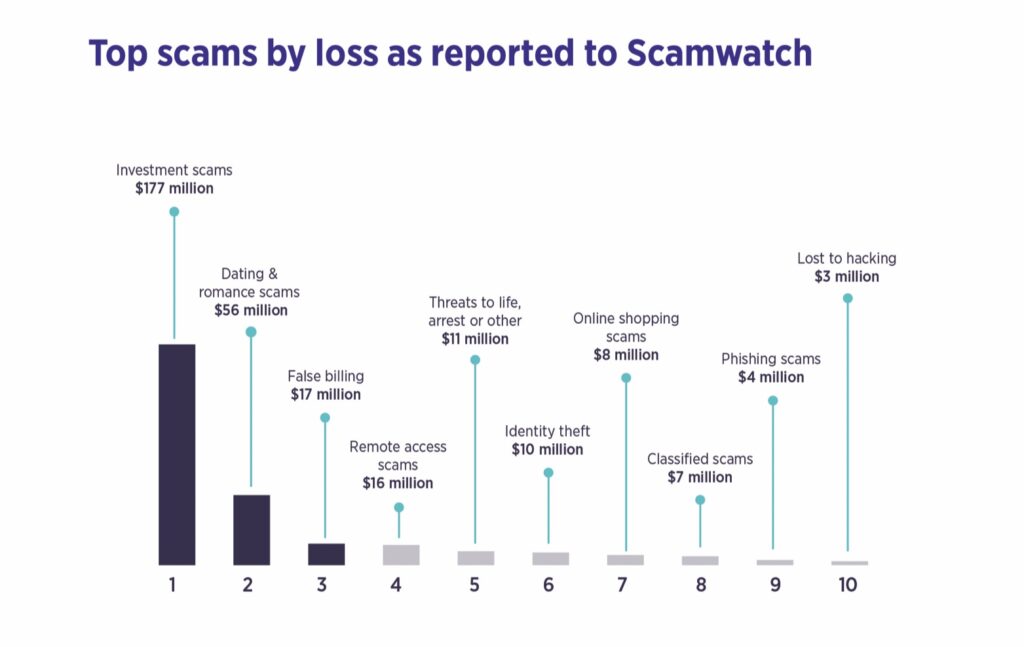Australians lose over $2 billion to scams in 2021
Australians lost a record amount of more than $2 billion to scams in 2021, the ACCC’s latest Targeting Scams report reveals.
The report compiles data from Scamwatch, ReportCyber, major banks and money remitters, and other government agencies, and is based on analysis of more than 560,000 reports. Reported losses to all organisations totalled almost $1.8 billion, but as one-third of victims do not report scams the ACCC estimates actual losses were well over $2 billion.
Investment scams were the highest loss category ($701 million) in 2021, followed by payment redirection scams ($227 million), and romance scams ($142 million).

“Scam activity continues to increase, and last year a record number of Australians lost a record amount of money,” ACCC Deputy Chair Delia Rickard said.
“The true cost of scams is more than a dollar figure as they also cause serious emotional harm to individuals, families, and businesses,” Ms Rickard said.
Based on reports to Scamwatch in 2021, women reported the most scams but men lost more money than women, and men’s losses to investment scams were double women’s losses. In culturally and linguistically diverse communities, women had slightly higher losses than men.
People aged 65 and over reported the highest losses, and reported losses steadily increased with age.
In 2021, Scamwatch received record levels of reports and losses from Australians that may have been experiencing vulnerability or hardship. People with disability made twice as many reports compared to 2020, and their financial losses increased by 102 per cent to $19.6 million.
ACCC research presented in the report shows that scams are almost ubiquitous in Australia today. Ninety-six per cent of respondents had been exposed to scammers in the previous five years, and 20 per cent had fallen victim. Of those who lost money, 56 per cent were unable to recover any of it.
In 2021, the ACCC increased its work with government agencies, domestic and international law enforcement, and major banks and telecommunications providers to share intelligence, disrupt scams and raise awareness in the community.
An international effort involving the Australian Federal Police led to the Flubot scam being stopped earlier this year. In 2021, the telecommunications sector’s new Reducing Scam Calls Industry Code resulted in more than 357 million scam calls being blocked.
Scamwatch data shows that between 2020 and 2021 there was a 60 per cent reduction in losses from inheritance and unexpected money scams, and only a one per cent increase in losses from travel, prizes and lottery scams. Conversely, losses from investment scams increased by 169 per cent over the 12 months.
“We have seen a marked decline in some of the older, low-end scams and an enormous increase in more sophisticated ‘white-collar’ fraud, such as cryptocurrency investment scams,” Ms Rickard said.
“There was a spike last year in scams relating to pyramid and ponzi schemes, largely due to the emergence of some sophisticated ponzi investment scam apps.”
“If an investment opportunity seems too good to be true, we urge all Australians to not go anywhere near it,” Ms Rickard said.





